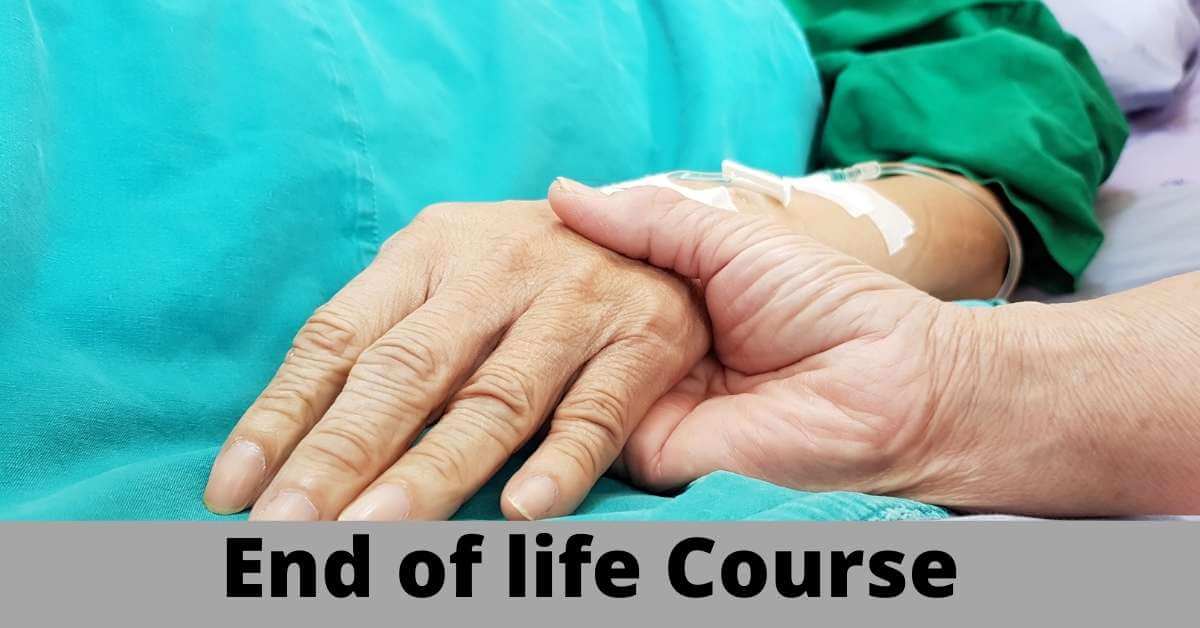Introduction
End of life course for nurses focuses on support for people who are in the last months or years of their life. People who are nearing the end of their lives and have stopped receiving treatment to cure or control their disease are given care. Patients and their families receive physical, emotional, social, and spiritual support as part of end-of-life care. The goal of end-of-life care is to keep the patient as comfortable as possible by controlling pain and other symptoms. Palliative care, supportive care, and hospice care are all examples of end-of-life care. Also known as comfort care.
End-of-life care should assist you in living as comfortably as possible until death and dying with dignity. People who provide your care should ask you about your wishes and preferences and take them into account as they plan your care with you.
End of life courses for nurses also train nurses that how you should support your family, caregivers, and other important people in your life.
You have the right to express your preferences for where you want to be treated and where you want to die. Depending on your needs and preferences, you can receive end-of-life care at home, in a care home, hospice, or in a hospital.
People nearing the end of their lives have the right to high-quality care, regardless of where they are cared for.
Nursing Revalidation provides best End-of-life care course for nurses.
Role of nurses in the end-of-life care
A nurse’s role in end-of-life care typically entails providing comfort and symptom relief. Nurses also serve as advocates, ensuring that the patient’s and family’s final wishes are carried out. There are following major roles of nurses in end-of-life care:
Hands-On Care
One of the main responsibilities of nurses who provide end of life care relates to direct, hands-on care.
Management of Pain Symptoms
Nurses are also in charge of assisting patients with pain management. A nurse may use a variety of strategies to help reduce the patient’s discomfort in addition to assessing pain levels.
Communication
Nurses must have excellent communication skills in order to effectively receive and exchange information with patients and their families.
Education
Nurses, in addition to their many roles, serve as healthcare educators for patients and family members. They assist patients in better understanding and dealing with their illnesses or ailments by discussing health issues and how they affect the body and mind.
Emotional Support
Caring for terminally ill loved ones around the clock can leave family members feeling isolated and overwhelmed. When a nurse from an in-home care agency is able to visit your loved one on a regular basis, you can get the emotional support you need from someone who understands the difficult situation.
How to handle emotions during end-of-life situations?
End-of-life care courses for nurses may also include assisting the dying person with coping with mental and emotional distress. Someone nearing the end of their life may understandably feel depressed or anxious. It is critical to address emotional pain and suffering. To encourage conversations about feelings, you might want to contact a counsellor, preferably one who is familiar with end-of-life issues. If the depression or anxiety is severe, medication may be prescribed.
The dying person may have specific fears and concerns as well. He or she may be afraid of the unknown or concerned about those left behind.
Some people are terrified of being alone at the end. The reactions of family, friends, and even the medical team can exacerbate these feelings. For example, family and friends may stop visiting because they don’t know how to help or what to say, or they may withdraw because they are already grieving. Doctors may feel helpless and avoid dying patients because they cannot provide any further assistance.
Furthermore, some people may experience mental confusion and strange or unusual behavior, making it difficult to connect with their loved ones. This can exacerbate a dying person’s sense of loneliness.
Here are a few words of advice to help you manage your mental and emotional needs:
- Make physical contact: Try holding hands or giving each other a gentle massage.
- Create a soothing atmosphere: Some people prefer quieter settings with fewer people. In the room, use soft lighting.
- Listen to music at a low volume: This can help with relaxation and pain relief.
- Involve the dying individual: If the person is still able to communicate, ask them what they require.
- Pay attention: Meet with the individual. Even if they can’t respond, talk or read to them. If they are able to speak, listen carefully to what they have to say without thinking about what you will say next. Your presence can be the greatest gift you can give to someone who is dying.
Best course for End-of-life care that a nurse should choose
Nursing Revalidation provides best End-of-life care course for nurses.
This course will provide you with information about what to expect, how to handle some of the emotions associated with this time, and working with the other professionals involved in end of life care.
Conclusion
End-of-life care courses for nurses refers to the support and medical care provided near the death. Patients and their families receive physical, emotional, social, and spiritual support as part of end-of-life care. The goal of end-of-life care is to keep the patient as comfortable as possible by controlling pain and other symptoms. Palliative care, supportive care, and hospice care are all examples of end-of-life care.

